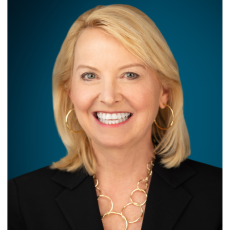Can you introduce yourself and explain your role at the Personal Care Products Council and its significance in the U.S. cosmetics and beauty industry?
The Personal Care Products Council (PCPC), with about 600 member companies, constitutes approximately 90% of the U.S.’ cosmetics and personal care market. We are the voice for the industry's perspectives on scientific, legal, regulatory, legislative and international matters. Our members, who include some of the most trusted brands in beauty and personal care, are global leaders committed to product safety, quality, and innovation. Regarding my background, before leading PCPC over the last 14 years, I held roles such as running the Office of Public Liaison at the White House and managing the governor’s office in Northern California.
Why is the personal care industry so important to the U.S.?
The personal care industry is a key contributor to the U.S. economy and community well-being. Our sector supports approximately four million jobs, contributes $170 billion in labor income and adds about $267 billion to the nation's GDP. This represents about 2% of total U.S. employment.
Our industry is a leader in corporate social responsibility, with 77% of our workforce comprised of women, more than half in management roles, and 33% representing people of color. We also have a significant global presence, generating a trade surplus annually and playing a vital role in sustainability and corporate social responsibility. Our industry's commitment to employing STEM professionals demonstrates our dedication to safety and innovation.
Can you discuss some key legislative and regulatory developments in the personal care industry?
I'm proud to discuss PCPC’s achievements in legislation and regulation. A notable accomplishment is the Modernization of Cosmetics Regulation Act (MoCRA) of 2022, which modernizes the FDA’s regulatory authority over our industry. This landmark legislation, achieved through bipartisan collaboration, enhances product safety and consumer trust. Another focus area is our commitment to eliminating the need for animal testing in cosmetics, exemplified by our support for the Humane Cosmetics Act. Furthermore, we are addressing challenges in e-commerce, advocating for the Shop Safe Act to combat the rise in counterfeit personal care products and ensure consumer safety. I believe these initiatives demonstrate our industry’s strong commitment to advancing product safety, innovation, and consumer confidence.
How have you applied your tech background to your role in the personal care industry?
Innovation is the key similarity between my tech background and the beauty and personal care industry. My experience in Silicon Valley taught me the value of innovation and the importance of forging partnerships. Even competitors can collaborate on issues crucial to consumers and the industry. My transition to this sector revealed the surprising level of innovation present here as well. This blend of innovation and partnerships has been instrumental in my role.
What trends in sustainability and safety are you excited about in the personal care industry?
Science and safety remain the cornerstones of our industry, and my hope is that science continues to drive conversations around safety. I am heartened when I hear research that states scientists and other subject matter experts are most trusted among consumers. Trust is key for so many industries, not just ours, and having scientific experts at the table to explain how products are made and how safety is assessed is critical.
We are dedicated to improving the wellbeing of people and the planet through sustainable practices. Our initiatives in this area include sharing best practices, stakeholder education, strategic communications, and storytelling. These efforts support our members' sustainable practices and align with our sector's dynamic growth and commitment to ethical behavior.
How is emerging technology like AI impacting the personal care industry?
Emerging technologies, particularly AI, are revolutionizing the cosmetics and personal care industry, making it more consumer-centric, efficient, and sustainable. AI enables better consumer engagement, enhances online shopping experiences, and improves product development and customization. It also aids in marketing, sales, inventory management, and supply chain optimization. AI's role in sustainability is notable too, as it helps in identifying eco-friendly ingredients and designing sustainable packaging solutions. This technology is a powerful tool for our industry.
What are the key growth areas for the U.S. personal care industry?
The U.S. personal care industry's growth is driven by the rising consumer demand for health and wellness products that align with personal values and environmental concerns. Consumers are increasingly seeking products made with sustainably sourced materials and eco-friendly packaging. The trend is particularly strong among younger consumers, who prioritize the environmental impact of their choices.
For those unfamiliar with the U.S. personal care industry, what should they know about entering this market?
The U.S. personal care industry is a cornerstone of the American economy, fostering jobs, diversity, and innovation with significant R&D investments. Our industry has demonstrated adaptability in responding to challenges like the pandemic and societal issues like diversity, equity, and environmental sustainability. As the world faces a variety of global issues our industry remains committed to a future that is diverse, equitable, inclusive, and sustainable. We take pride in the transformative impact our members make every day globally in the lives of millions of consumers.





